The rise of artificial intelligence (AI) has ignited a fierce debate about its potential impact on the job market. Will AI replace human workers? Will it render entire industries obsolete? Or will it simply augment our existing capabilities, ushering in a new era of productivity and innovation?
In this comprehensive guide, we’ll delve into the nuances of AI, exploring its potential benefits, risks, and the industries most likely to be affected.
As a tech enthusiast and data engineer, I have been involved in various machine learning technologies, prompt engineering, and AI at large. I can categorically tell you that this is just the beginning of the AI Era.
Tech giants like Google and Microsoft are engaged in a frontline battle against OpenAI and its amazing Product ChatGPT, providing us with a clear picture of what to expect from the era that is already here.
Initially, I perceived ChatGPT as just another chatbot, but its impressive performance and growing popularity surprised me.
The Rise of the Machines
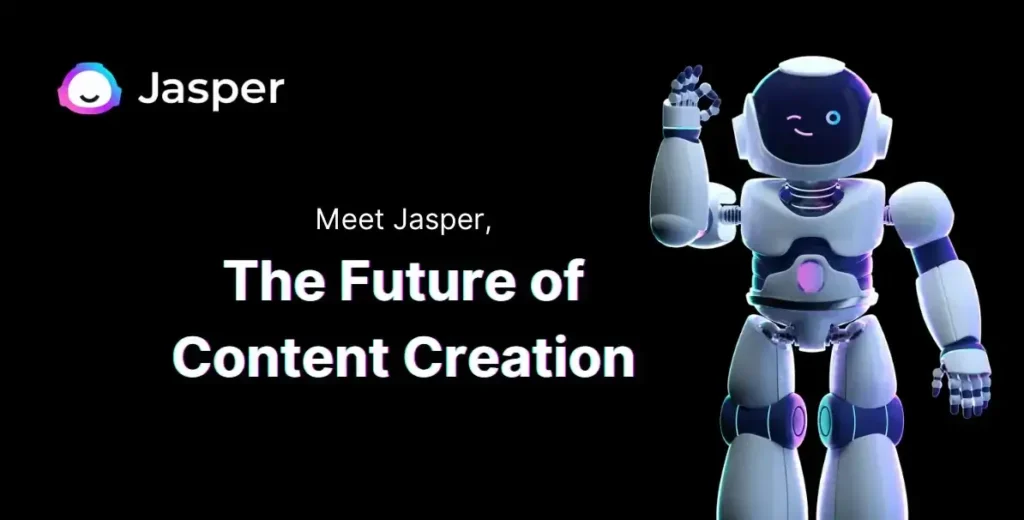
Before we dive into the job market implications, let’s clarify what we mean by AI. Artificial intelligence refers to the ability of machines to simulate human intelligence, such as learning, problem-solving, and decision-making.
AI comes in various forms, from simple algorithms that power recommendation engines to sophisticated systems capable of natural language processing and image recognition.
Learning as a Human: The Remarkable Journey of Knowledge Acquisition

Imagine starting as a newborn, completely unaware of the world around you. From observing and differentiating objects to understanding language, the learning process for humans is a gradual and time-consuming endeavor.
On average, a two-year-old can comprehend around 250 words, rapidly expanding to approximately 20,000 words by the age of 6 or 7 (Hoff, 2013). However, what if we could accelerate this learning process exponentially?
What if we could absorb knowledge equivalent to 20,000 words in just 6 seconds instead of 6 years?
This is precisely what AI accomplishes—it learns at an extraordinary pace, enabling it to tackle complex subjects like calculus or grasp the entirety of human history in hours.
The Learning Process of AI: Unleashing the Power of Data and Technology
AI, an artificial intelligence computer program, seeks to replicate the learning capacity of the human brain but at an accelerated rate. The capabilities of the computer it runs on and the training it receives determine its effectiveness.
Recent decades have witnessed unprecedented access to vast amounts of information through the internet with a simple click.
Furthermore, our pocket-sized devices now possess immense computing power, and the ability to create computer clusters allows for unparalleled computational skills.
Cloud service providers offer cost-effective access to these powerful machines, making AI more feasible and attainable than ever before.
Consequently, AI algorithms can master any profession or skill in seconds, while humans may spend several years in college, not accounting for the time required to acquire fundamental knowledge related to specific fields—a hurdle that AI does not face.
Why AI Has Blossomed: Unleashing the Potential of Information and Technology
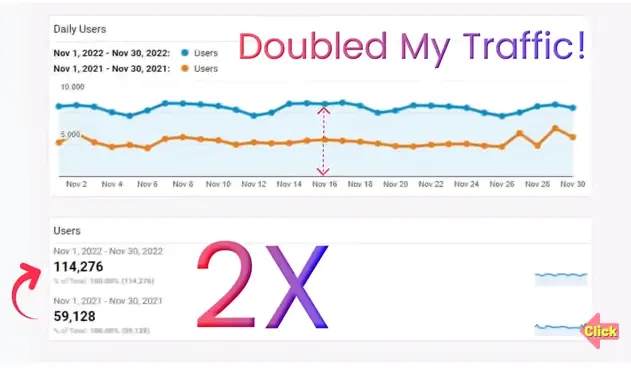
The rapid development of AI can be attributed to the combination of increased internet accessibility and advancements in technology.
With just a few clicks, we now have access to an abundance of information that was unimaginable in the past. Our pocket-sized devices possess computational power that surpasses early supercomputers.
Furthermore, the ability to create computer clusters and access them through cloud service providers has democratized AI capabilities. These factors have culminated in a new era where AI algorithms can learn and acquire skills with unmatched speed, rendering the traditional educational timeline insufficient for keeping pace.
AI Impact on the Job Market: The Good, the Bad, and the Uncertain
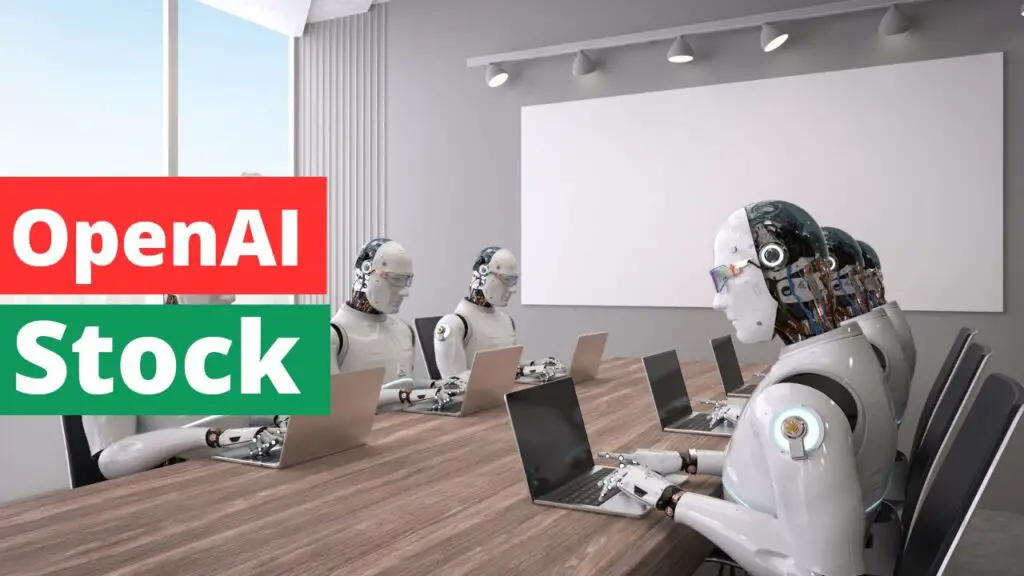
The Good News:
- Increased Efficiency and Productivity: AI can automate repetitive tasks, freeing up human workers to focus on more complex and creative endeavors.
- Improved Decision-Making: AI-powered systems can analyze vast amounts of data, uncovering insights that humans might miss, leading to better-informed decisions.
- Enhanced Customer Experiences: AI-powered chatbots and virtual assistants can provide personalized and efficient customer service, improving satisfaction and loyalty.
- New Job Opportunities: The development and deployment of AI will inevitably create new jobs, such as AI engineers, data scientists, and machine learning specialists.
The Bad News:
- Job Displacement: AI has the potential to automate certain jobs, particularly those involving repetitive tasks or predictable patterns.
- Skill Gap: As AI technology advances, the demand for workers with specialized skills in AI and related fields will increase, leaving those without these skills at a disadvantage.
- Economic Inequality: If the benefits of AI are not distributed equitably, it could exacerbate existing economic disparities.
The Uncertain Future:
- The Rate of Adoption: The speed at which AI is adopted across industries will significantly impact its effect on the job market. A rapid transition could lead to greater disruption, while a gradual integration might allow for smoother adjustments.
- The Nature of Work: Some experts believe that AI will augment rather than replace human workers, emphasizing the importance of human-AI collaboration.
- Government Policies: The role of government in regulating AI and supporting workers affected by automation will be crucial.
Industries Most Likely to Be Affected:
- Manufacturing: AI-powered robots are already transforming the manufacturing sector, automating assembly lines and other repetitive tasks.
- Transportation: Self-driving vehicles could revolutionize transportation, potentially replacing truck drivers, taxi drivers, and delivery drivers.
- Customer Service: AI-powered chatbots and virtual assistants are increasingly handling customer inquiries, reducing the need for human agents.
- Finance: AI algorithms can analyze financial data and make investment decisions, potentially impacting jobs in the financial sector.
Jobs at Risk: Automation on the Horizon
The integration of artificial intelligence (AI) into various industries is undeniably reshaping the workforce. While AI promises increased efficiency and productivity, it also raises valid concerns about job displacement.
Certain sectors are more vulnerable to automation due to the nature of their tasks. Let’s delve deeper into some specific roles and industries where AI’s impact is already being felt or is anticipated in the near future.
- Manufacturing and Production: The manufacturing sector has long been a pioneer in automation, with robots replacing humans in assembly lines and other repetitive tasks. AI is taking this further, enabling machines to perform complex quality control checks, predictive maintenance, and even design optimization. This trend is expected to accelerate, potentially displacing workers in roles like welders, painters, and even some engineers.
- Transportation and Logistics: The rise of self-driving technology is poised to revolutionize transportation. While fully autonomous vehicles are still under development, we’re already seeing AI-powered systems assisting truck drivers and optimizing delivery routes. As this technology matures, it could lead to a significant reduction in the demand for truck drivers, taxi drivers, and delivery personnel.
- Customer Service: The customer service landscape is being transformed by chatbots and virtual assistants. These AI-powered tools can handle routine inquiries, troubleshoot basic issues, and even process orders. While they may not completely replace human agents, they are likely to reduce the need for large call center teams, particularly for simple tasks.
- Data Entry and Processing: AI’s ability to process vast amounts of data with speed and accuracy poses a threat to jobs that involve repetitive data entry and analysis. This includes roles like data entry clerks, insurance claims processors and even some financial analysts.
- Retail and Food Service: Self-checkout kiosks, automated ordering systems, and even robot-powered kitchens are becoming increasingly common. While these technologies offer convenience and efficiency, they also raise concerns about the future of cashiers, waiters, and fast-food workers.
- Agriculture: AI is making its way into the fields, with robots and drones being used for tasks like planting, harvesting, and monitoring crops. While this can improve yields and reduce labor costs, it may also lead to job losses for agricultural workers, particularly in areas with large-scale farming operations.
- Financial Services: The financial sector is increasingly relying on AI algorithms for tasks like fraud detection, risk assessment, and investment analysis. This could reduce the demand for financial analysts, loan officers, and even some portfolio managers.
- Healthcare: AI is showing promise in medical diagnosis, image analysis, and drug discovery. While it’s unlikely to replace doctors and nurses entirely, it could automate certain tasks like analyzing medical scans, freeing up healthcare professionals to focus on patient care.
The Way Forward:
While the prospect of job displacement is concerning, it’s important to remember that AI is not solely a destructive force. It also has the potential to create new jobs and industries that we can’t yet imagine.
To thrive in this changing landscape, individuals and societies need to adapt by embracing lifelong learning, focusing on uniquely human skills, and investing in education and training programs that prepare workers for the jobs of the future.
The Evolution of Work: New Roles Emerge in the Age of AI
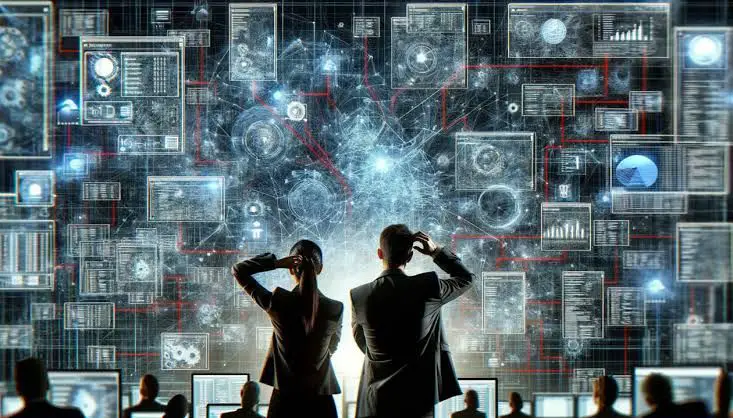
History is a testament to the fact that technological advancements, while displacing some jobs, inevitably create new opportunities. The Industrial Revolution mechanized agriculture and manufacturing, leading to a surge in factory jobs and urban growth. Similarly, the rise of personal computers birthed the software industry, creating countless roles for programmers, designers, and tech support professionals.
The AI revolution is poised to follow this trend. As AI automates routine tasks, we’ll witness a shift towards roles that leverage uniquely human skills. Here are some examples of emerging and evolving professions:
AI Ethicists: As AI systems become more sophisticated, ensuring their ethical use becomes paramount. AI ethicists will be responsible for developing ethical guidelines, addressing biases in algorithms, and ensuring that AI technology is used responsibly and fairly.
AI Trainers: Training AI models requires expertise in data preparation, model optimization, and performance evaluation. AI trainers will play a crucial role in refining AI systems, ensuring they function accurately and reliably.
AI Explainers: As AI decisions impact various aspects of our lives, the need for transparency and understanding grows. AI explainers will bridge the gap between complex algorithms and human comprehension, translating AI output into clear, actionable insights.
AI Interaction Designers: Creating intuitive and user-friendly interfaces for AI systems will be essential for widespread adoption. AI interaction designers will focus on crafting seamless user experiences, ensuring that interactions with AI feel natural and intuitive.
Data Scientists and Analysts: AI relies heavily on data, making data scientists and analysts indispensable. They’ll collect, clean, and analyze vast datasets, uncovering patterns and insights that inform AI model development and decision-making.
Robotics Engineers: The integration of AI with robotics will create a demand for engineers who can design, build, and maintain intelligent machines. These professionals will play a vital role in industries like manufacturing, healthcare, and logistics.
Human-AI Collaboration Specialists: Rather than replacing humans, AI will increasingly work alongside us. Specialists in human-AI collaboration will design workflows that optimize the interaction between humans and AI systems, maximizing productivity and efficiency.
The evolution of work in the age of AI is a dynamic process. As technology advances, new roles will undoubtedly emerge, requiring a combination of technical expertise, creativity, and human-centric skills. Embracing lifelong learning and adaptability will be key to thriving in this ever-changing landscape.
Adapting to the AI Era: Upskilling and Reskilling
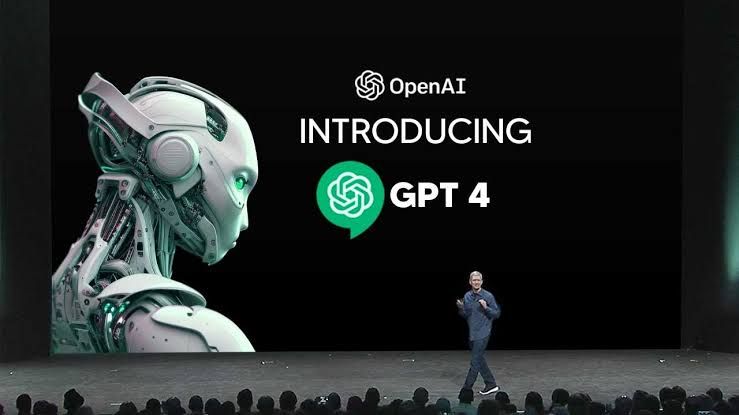
As AI becomes increasingly integrated into our lives, the workforce needs to adapt to remain competitive. Upskilling and reskilling aren’t just buzzwords; they’re essential strategies for individuals, businesses, and society as a whole.
Upskilling: Leveling Up Your Existing Skills
Upskilling focuses on enhancing your current skill set to meet the evolving demands of the job market. In the AI era, this might involve:
- Technical Skills: Learning to work alongside AI tools, understanding the basics of machine learning, or developing expertise in data analysis.
- Data Literacy: Understanding how to interpret data, identify patterns, and make informed decisions based on data-driven insights.
- Critical Thinking and Problem Solving: These skills are essential for navigating complex challenges and adapting to new situations, which AI can’t always handle on its own.
- Adaptability and Learning Agility: Being open to change and embracing continuous learning will be crucial for staying ahead of the curve.
Reskilling: Embracing New Career Paths
Reskilling is about acquiring entirely new skills to transition into a different career field. This can be necessary when AI automates certain roles, rendering existing skills obsolete.
- Creative Fields: AI struggles with creativity, so exploring areas like design, writing, music, or art can be a valuable path.
- Human-Centered Skills: Focusing on skills that AI can’t replicate, such as empathy, communication, interpersonal skills, and emotional intelligence, will be increasingly important in fields like healthcare, education, and social work.
- AI-Related Fields: As AI technology expands, new jobs will emerge in areas like AI ethics, development, and maintenance.
Who’s Responsible for Upskilling and Reskilling?
- Individuals: Taking ownership of your career development and proactively seeking out learning opportunities is key.
- Businesses: Investing in employee training programs and offering resources for upskilling and reskilling can attract and retain top talent.
- Governments: Creating policies that support lifelong learning and provide incentives for reskilling can help smooth the transition to an AI-driven economy.
- Educational Institutions: Adapting curricula to reflect the changing job market and offering accessible training programs for adults are crucial.
Embracing the Challenge
While the rise of AI may seem daunting, it also presents exciting opportunities for growth and innovation. By embracing upskilling and reskilling, we can equip ourselves with the skills needed to thrive in this new era. Remember, the most valuable skills in the AI age will be uniquely human: creativity, empathy, critical thinking, and the ability to adapt to change.
Additional Tips:
- Stay informed: Keep up with the latest developments in AI and the job market.
- Network: Connect with professionals in your desired field and learn from their experiences.
- Take online courses: Platforms like Coursera, Udemy, and LinkedIn Learning offer a vast range of courses on relevant topics.
- Seek mentorship: Find a mentor who can guide you on your upskilling or reskilling journey.
The AI era is here, and it’s up to us to embrace it. By actively developing our skills and embracing lifelong learning, we can not only survive but thrive in this exciting new world of work.
Harnessing Human Potentials in the AI Era
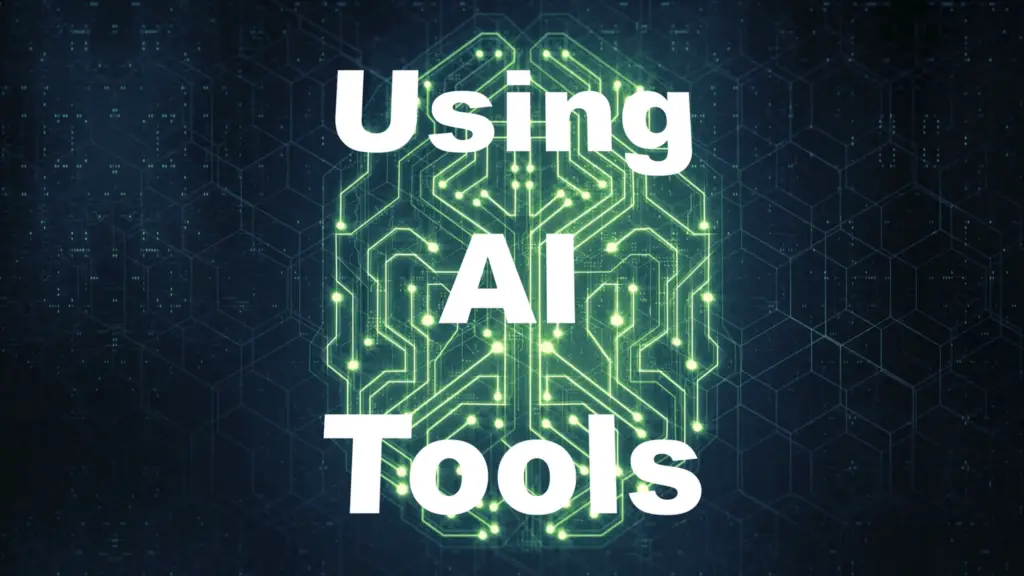
The narrative surrounding AI often focuses on its potential to replace human workers. However, a more nuanced perspective reveals a future where AI and humans work in tandem, amplifying each other’s strengths. By harnessing human potential in conjunction with AI capabilities, we can create a powerful synergy that drives innovation and progress.
Augmenting Human Abilities
AI can be a valuable tool to augment human abilities, allowing us to perform tasks more efficiently and effectively. For instance, AI-powered tools can help doctors analyze medical images, assisting in faster and more accurate diagnoses. In the legal field, AI can sift through vast amounts of legal documents, freeing up lawyers to focus on strategic decision-making and client interaction.
Focusing on Uniquely Human Strengths
While AI excels at data processing and automation, it falls short in inherently human areas. Creativity, empathy, critical thinking, and complex problem-solving are skills that AI struggles to replicate. By focusing on these strengths, humans can differentiate themselves in the job market and contribute value that AI cannot.
Creating New Opportunities
The integration of AI into various industries is creating new and exciting career paths. As AI systems become more prevalent, the demand for professionals who can design, develop, maintain, and ethically manage these systems will continue to grow. This opens up a wealth of opportunities for individuals with diverse skill sets, from technical expertise to creative problem-solving abilities.
Fostering a Culture of Lifelong Learning
To thrive in the AI era, individuals need to embrace a mindset of continuous learning and adaptation. Upskilling and reskilling are essential for staying relevant in a rapidly evolving job market. By investing in education and training, individuals can acquire the skills necessary to navigate the changing landscape and seize new opportunities.
Collaboration and Co-Creation
The most promising future lies in collaboration between humans and AI. By working together, we can leverage the strengths of both, leading to innovative solutions and breakthroughs. This collaborative approach fosters a more inclusive and equitable future of work, where humans and AI complement each other’s abilities.
The Human-AI Partnership: A Catalyst for Progress
The key to harnessing human potential in the AI era is to view AI not as a threat, but as a powerful tool that can enhance our capabilities and expand our horizons. By embracing AI, adapting our skills, and focusing on our uniquely human strengths, we can create a future where technology and humanity work in harmony, driving progress and improving lives.
The Human Touch: Why People Remain Irreplaceable in the Age of AI
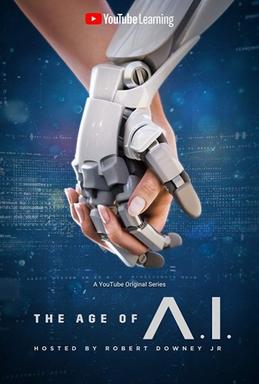
While AI continues to impress with its ability to process information and automate tasks, there remains a vast landscape of skills and qualities that are uniquely human and irreplaceable in the workplace. Here’s why the human touch remains invaluable:
- Emotional Intelligence and Empathy:
- AI can analyze data, but it can’t truly understand human emotions, motivations, and nuances in communication.
- Professionals in fields like healthcare, counseling, and customer service rely on empathy and emotional connection to build trust and provide meaningful support.
- Creativity and Innovation:
- AI can generate content and solutions based on existing data, but true creativity comes from human imagination and our ability to think creatively.
- Writers, artists, designers, and entrepreneurs depend on their creative spark to propel innovation and challenge boundaries.
- Critical Thinking and Complex Problem-Solving:
- AI excels at solving well-defined problems with clear rules, but it struggles with ambiguity and situations requiring nuanced judgment.
- Leaders, scientists, and researchers often face complex challenges that demand critical thinking, intuition, and the ability to adapt to unforeseen circumstances.
- Ethical Decision-Making and Moral Judgment:
- AI operates on algorithms and data, lacking the moral compass and ethical reasoning that guide human behavior.
- Professionals in fields like law, medicine, and social work must grapple with ethical dilemmas and make decisions based on values and principles.
- Interpersonal Skills and Collaboration:
- While AI can facilitate communication, it cannot replicate the richness of human interaction, the ability to build rapport, and the nuances of nonverbal communication.
- Teams in any industry rely on effective communication, trust, and collaboration to achieve shared goals.
- Adaptability and Flexibility:
- AI can be trained on specific tasks, but it struggles to adapt to rapidly changing environments or unexpected situations.
- Humans are naturally adaptable, able to learn new skills, and apply knowledge to novel problems.
- Leadership and Inspiration:
- AI can provide insights and recommendations, but it cannot inspire, motivate, and lead others with empathy and vision.
- Effective leaders understand the importance of building relationships, fostering a positive work culture, and empowering others to reach their full potential.
Conclusion: Will AI Replace Human Workers?
While AI will undoubtedly transform the job market, it’s unlikely to completely replace human workers. By embracing change, investing in our skills, and focusing on tasks that require uniquely human abilities, we can thrive in the AI-powered future. The key is to be proactive, adaptable, and open to new possibilities.
Discover more from Digital Wealth Guru
Subscribe to get the latest posts sent to your email.

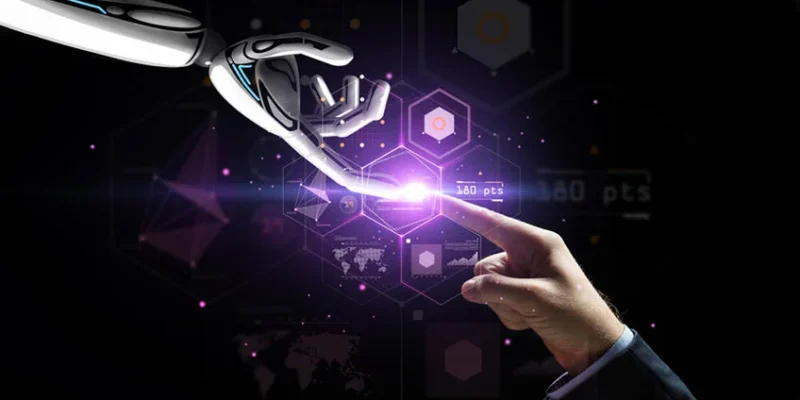
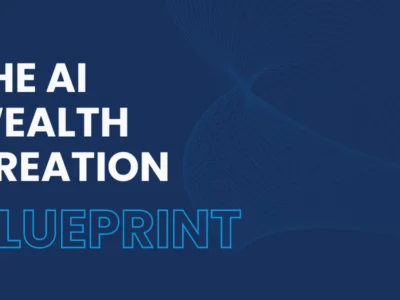
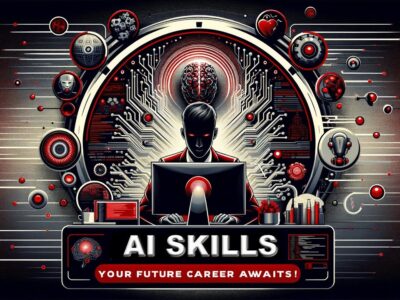
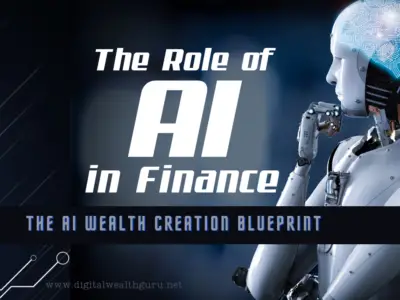
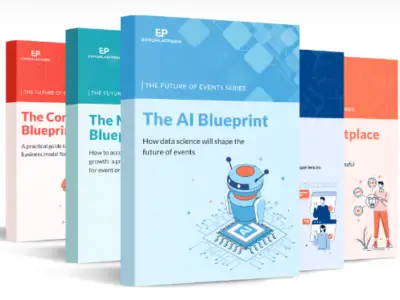
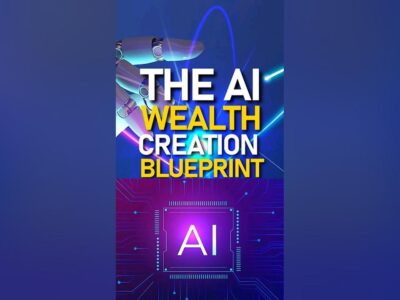
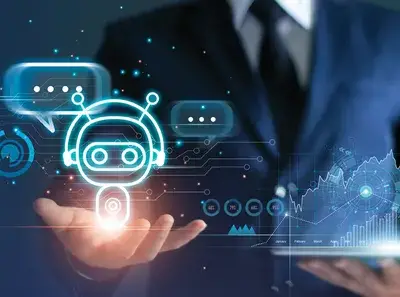
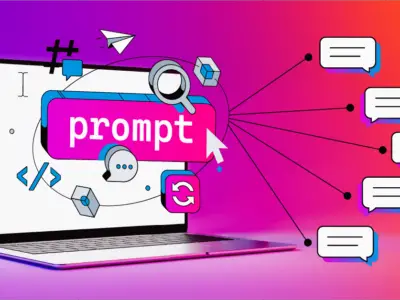
Comments